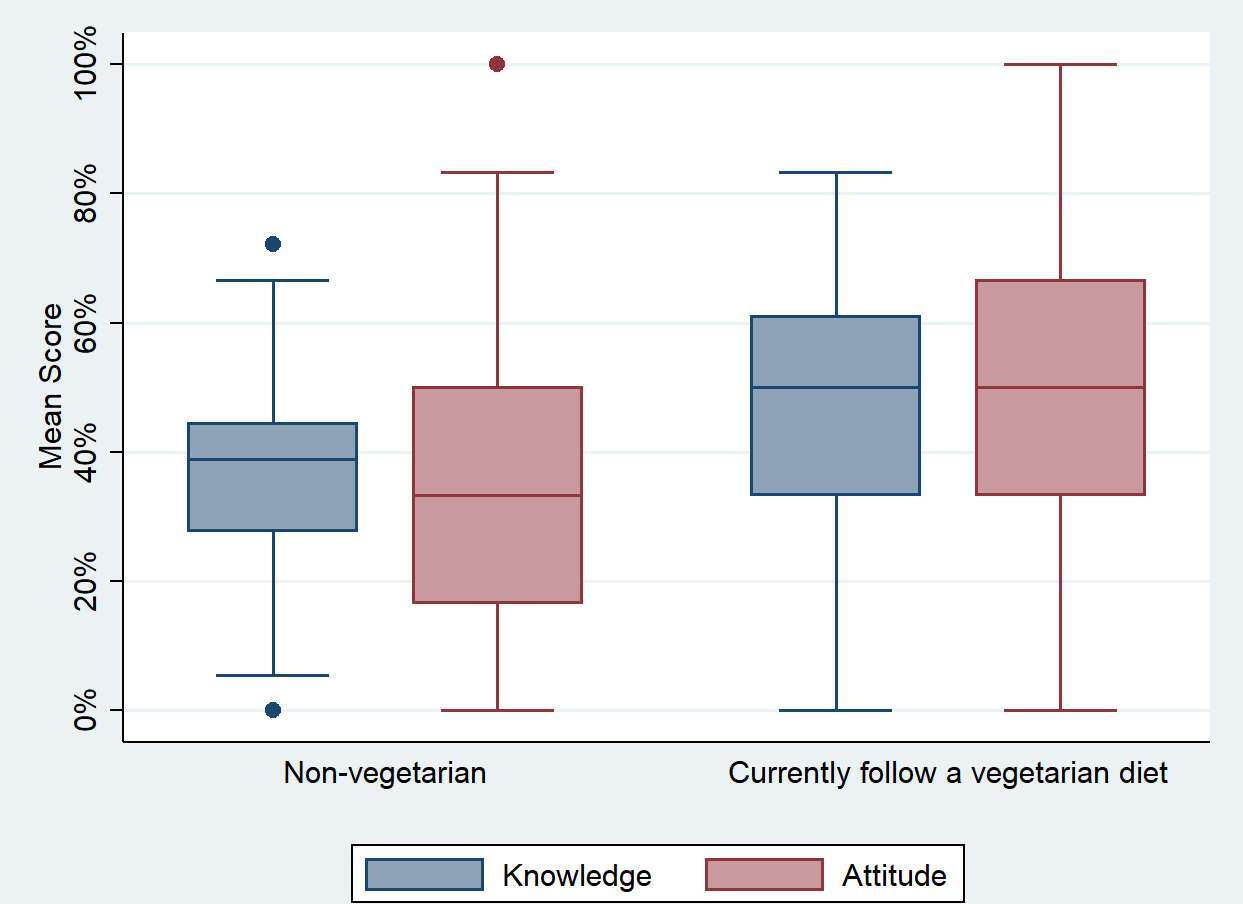
Pediatricians’ Knowledge and Attitudes Towards Vegetarianism
2בית ספר לרפואה ע"ש סאקלר, אוניברסיטת תל אביב, ישראל
3ילדים, מרכז רפואי תל השומר, ישראל
4כירורגית ילדים, מרכז רפואי איכילוב, ישראל

BACKGROUND: Pediatricians have an important role in the dietary education of children, and in the nutritional health of their patients. We assessed the knowledge and attitudes of pediatricians regarding vegetarian diets.
METHODS: A cross-sectional study using a previously implemented questionnaire, distributed amongst a convenience sample of pediatricians in Israel. For each participant, scores of knowledge and of attitudes towards vegetarian diets were calculated. Scores were analyzed and compared between various categorizations of the respondents.
RESULTS: Of 270 respondents (60.4% female), 14.1% were following a vegetarian or semi-vegetarian diet. The overall mean scores for knowledge and attitude were 37.9±16.0% and 38.1±20.7%, respectively. Among pediatricians currently following a vegetarian or semi-vegetarian diet, mean knowledge and attitude scores were higher by 12.2% (95% CI 6.8-17.6, p<0.001) and 17.4% (95% CI 10.5-24.2, p<0.001), respectively, compared to non-vegetarians. Knowledge scores were found to be positively correlated with attitude scores. Only 13.4% of pediatricians felt that their medical degree studies prepared them well to deal with vegetarian patients. A higher knowledge score was correlated with inquiring of patients eating habits, and counseling on vegetarian diets.
CONCLUSION: Pediatricians possess a low average knowledge base in vegetarian nutrition. The majority of pediatricians do not hold positive attitudes concerning vegetarian diets. We show a positive correlation between overall knowledge and overall attitude for individual participants. Increasing the knowledge base of pediatricians regarding vegetarian diets may lead them to conceive meatless diets in a more positive light and better counsel their patients.
Powered by Eventact EMS